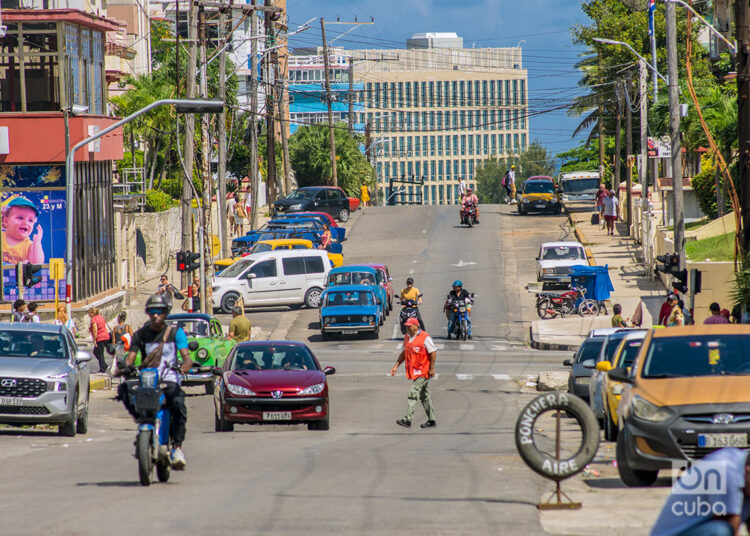The Cuban government reported this Wednesday that it estimates that between March 2023 and February 2024, the U.S. embargo against Cuba amounted to 5.056.8 billion dollars (4.584 billion euros).
The data appears in its annual report on the blockade (embargo), the documentary basis of the resolution that Havana has presented every year for more than three decades against these sanctions before the United Nations General Assembly, and which has the majority support of its members.
“It is not permissible, legal or ethical, that for decades a small country be subjected to a criminal policy of suffocation, with economic damages that exceed 164.,141.1 billion dollars at current prices,” the text states concerning the total amount that Havana estimates for these sanctions.
Cuban Foreign Minister Bruno Rodríguez is expected to present the report to the media this Thursday.
According to the document, between March 1, 2023, and February 28 of this year, the embargo caused economic damage that was 189.8 million dollars higher than it had in the previous twelve months.
Similarly, the government argued that if the U.S. sanctions did not exist, the island would have achieved a growth of its gross domestic product (GDP) “at current prices” of 8% in 2023, in contrast to the 1.9% drop with which it closed last year, according to official figures.
“[The embargo] is an act of unilateral aggression, a permanent threat against the stability of the country and a massive, flagrant and systematic violation of the human rights of all Cubans,” the text stated.
Likewise, the report criticized that, although the United States removed Cuba from the list of countries that do not fully cooperate with efforts against terrorism last May, it did keep it on the list of States sponsoring terrorism.
The second, unlike the first, translates into a list of economic sanctions, as well as serious restrictions on the international financial system.
“It was a limited decision that makes Cuba’s permanence on that list, on which it should never have appeared, even more incongruous, confusing and unjustifiable,” it stressed.
Also last May, the administration of U.S. President Joe Biden allowed private Cuban businesspeople to open bank accounts in the United States.
In this regard, the Cuban government criticized that this measure does not modify “the fundamental body” of the embargo and that, rather, it seeks to “fragment Cuban society” and “use the private sector for political purposes against the revolution.”
Cuban government: U.S. embargo causes losses of 9.157 billion between 2019 and 2020
In this context, Deputy Spokesman for the State Department Vedant Patel recognized the validity and breadth of the embargo, something reiterated again and again by the Cuban authorities and minimized by their opponents.
“Cuba remains subject to an incredibly comprehensive embargo still,” admitted Patel, as can be read in the transcript of the press briefing of the State Department.
Washington allows some commercial activities with the island through exemptions and licenses, under certain conditions — such as payment in cash — and with the authorization of the U.S. authorities. According to the Cuban government, U.S. sanctions caused damages and losses estimated at 4.867 billion dollars between March 1, 2022, and February 28, 2023.
Cuba has been mired in a serious economic crisis for more than four years and its government mainly blames the U.S. sanctions for this situation.
The worsening of the structural imbalances in the Cuban economy is also significantly influenced by the consequences of the pandemic and certain economic and monetary policy decisions of the Cuban government.
EFE/OnCuba









